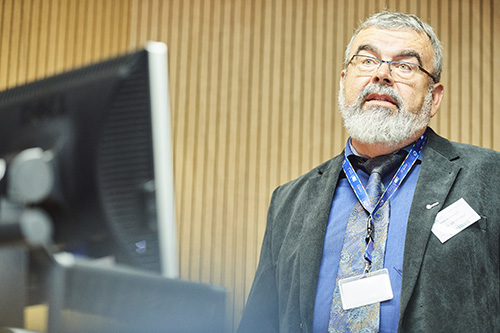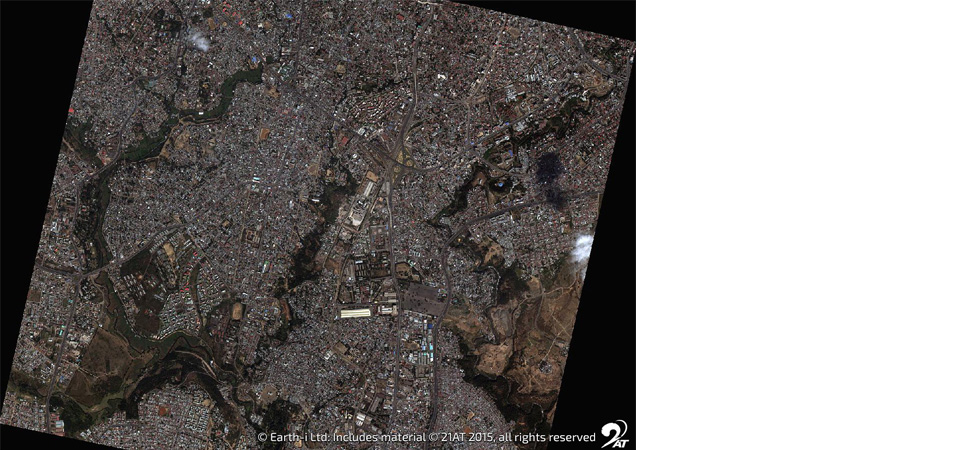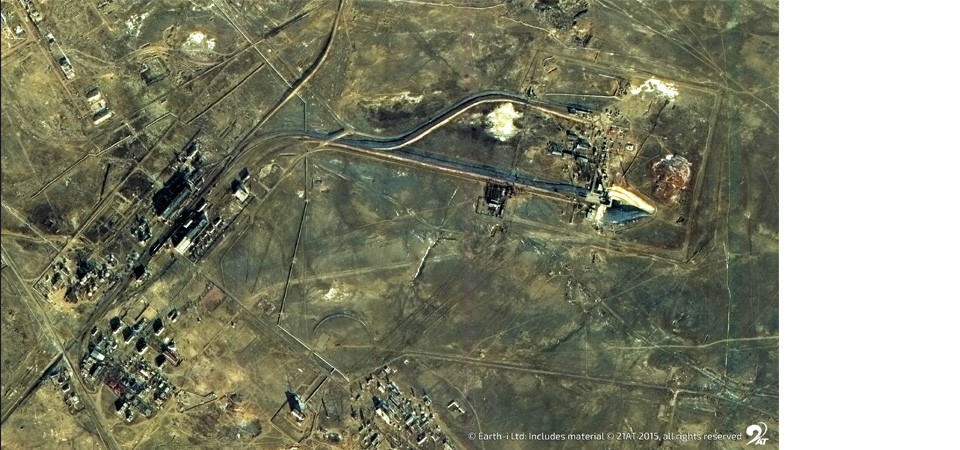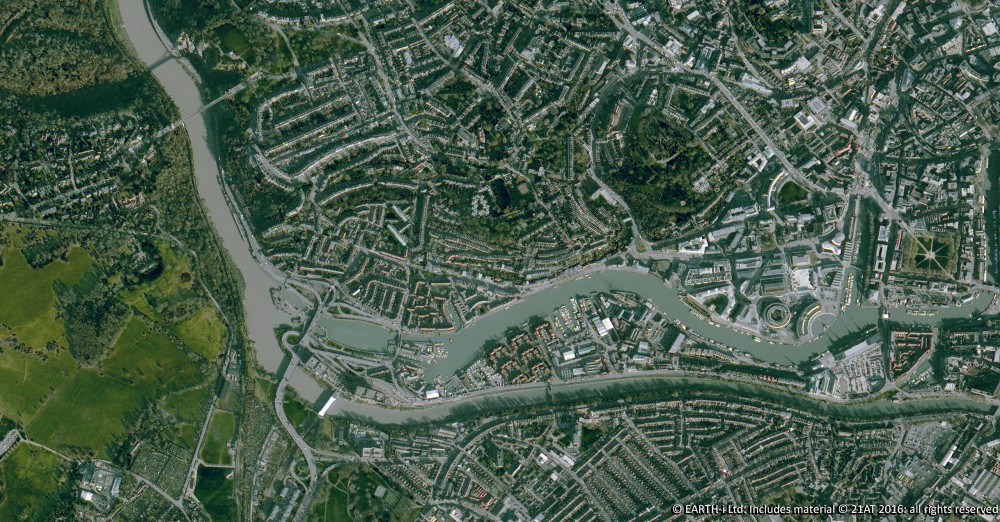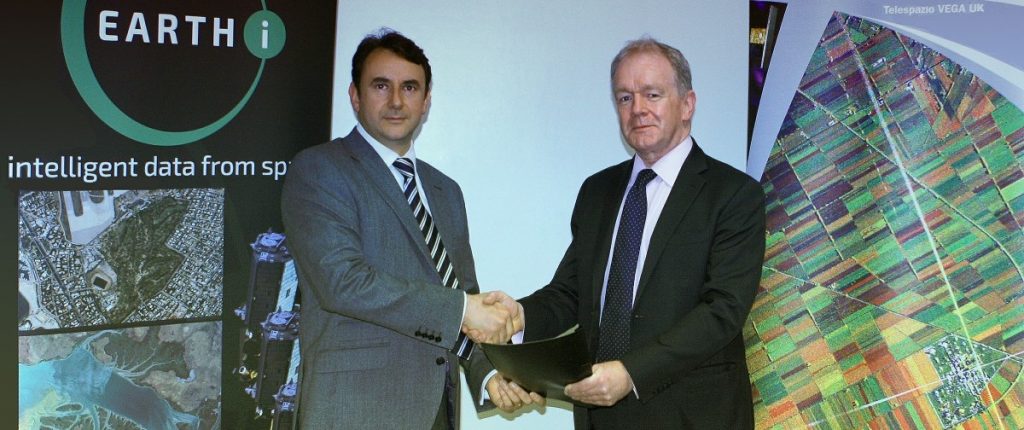By Jonathan Sumner, Business Development Director
21st century Africa was on impressive display in Kigali, capital city of Rwanda, on 12-15 February at the African Fine Coffees Association conference. The event was a microcosm of the rapid development of modern Africa, and as a delegate to the conference on behalf of Earth-i’s ACCORD programme, I was again reminded of how East Africa is quickly becoming a sophisticated business and technology hub in the global economy.
Staged in the impressive Kigali Convention Centre, the conference and the exhibition brought together Africa’s coffee producers with coffee buyers, roasters and retailers from a host of other countries. As the name implies, the focus is very much on the production and distribution of some of the world’s finest coffee, and having taken part in a ‘cupping’ session, I can attest to how successful African farmers and cooperatives are in producing exquisite coffee. This is a centre for a truly premium product and the opportunity for African producers to generate wealth for their countries and their local communities is very significant indeed.
Clearly, there are challenges nonetheless. A recent dip in the price of coffee on the world market, driven largely by a surge in the supply of coffee beans from other regions, has pushed down demand, and therefore farmer earnings in the short term. However, the determination of producers and government agencies supporting their farmers, and the energy of locally based coffee exporting companies was very much in evidence. Fine African coffee can and should offer significant GDP growth for the exporting nations of Rwanda, Kenya, Uganda, Tanzania, Ethiopia, Burundi, DRC and Cameroon – all on colourful and confident display in the exhibition hall.
Three major themes struck me as powerful evidence of the sophistication and modernity of these nations within the coffee industry: the application of technology, the importance of sustainability, and the emergence of women’s rights and gender equality as a critical social and economic issue.
Technology – Precision agriculture is no longer the preserve of big agri-businesses in the West. It’s coming to Africa in a big way. A wealth of science and research is being deployed to drive new solutions to old challenges, and provide farmers, whether on estates or in smallholdings, with the tools to deal with climate change and unpredictable weather. The ACCORD programme Earth-i is leading with our fellow UK-based agri-tech partner WeatherSafe, is one such example of how African agriculture is benefiting from sophisticated, yet affordable solutions that will sustain and increase crop yields, despite the challenges of less predictable climate and weather conditions. Our team was greatly encouraged by the very positive reception to our solution for driving up coffee bean yields, quality and farmer incomes.
Sustainability – Although most farmers rely on coffee as a cash crop for their families, it is a challenging crop to grow; with farmers typically producing coffee cherries from plots which are less than half a hectare. With climate change making good crop management harder, crop yields can suffer radically with a potentially disastrous impact on farmer incomes. For instance, in 2013 Guatemalan farmers lost 70% of their coffee crops to leaf rust causing trees to lose their leaves, resulting in fewer beans and reduced quality[1]. If smallholder farmers cannot rely on coffee as a cash crop, they will abandon it and turn to other cash crops to sustain their income. Speakers from an array of global organisations focused on the relevance of this issue in several sessions, at the recently concluded conference. Without sustainable smallholder farmers, there will not be a sustainable supply of fine coffee to meet our increasingly sophisticated palates. The conference provided ample evidence of the coalescence of interests between farmers, government, international agencies and business, and the meaningful partnerships being forged between them to tackle this critical issue. Many ‘developed’ nations could learn a lesson or two from the East African play-book in that regard!
Women’s Rights – International research has shown that typically around a third of coffee farmers are women – for example IWCA research estimated the proportion being 32% in Rwanda[2]. For most small holdings, women do most of the work managing the crop, and gender equality is increasingly an economic issue in their communities. Our very own ACCORD partner, Jacqui Turner of Kinini Coffee Company, is active in the Rwandan women-in-coffee movement through the International Women’s Coffee Alliance, one of several women farmer organisations advocating for the economic and social development impact of women farmers and business people in the industry. Another major ACCORD partner, CMS, also brought some of their female farmers to the conference. Their energy, passion, and commitment to their coffee and its fine qualities, was a timely reminder of the fundamental importance of women to the sustainable supply of our daily cup of quality coffee on our high streets back home.
As ACCORD rolls out its sophisticated science and technology on the ground in Rwanda and Kenya, a week in Kigali at the AFCA Conference drove home the parallel sophistication and modernity of these energetic African nations and their committed coffee producers. The technology of course will have a critical impact on production and sustainability, but without the people on the ground and their willingness to embrace that technology, it would mean very little. As I will always acknowledge – the small holder farmers of Africa are the most important component of our solution – and so many of them are hard-working, forward-looking women.
For more information about the ACCORD programme, visit our web page.
[1] https://www.bbc.co.uk/news/world-latin-america-21392257
[2] IWCA Research June 2018


